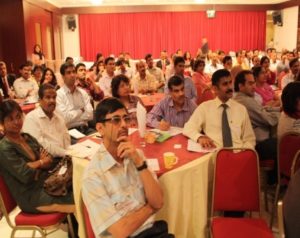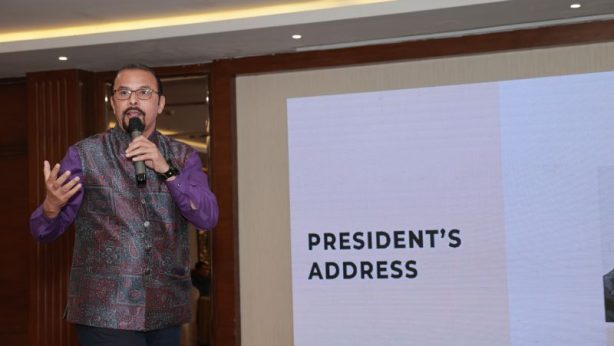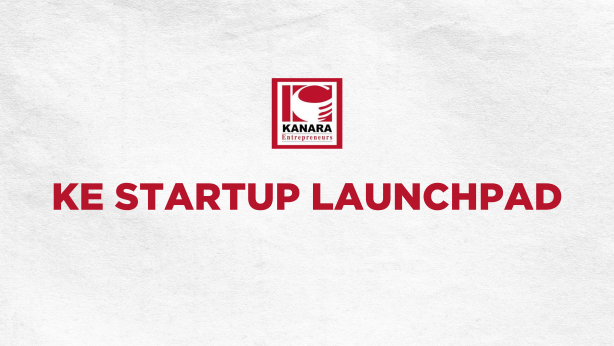Huge Turnout at KEL Event on ‘Importance of Wills for Expats in UAE’
Dubai, Jan 15: Kanara Entrepreneurs Ltd., Dubai (KEL) conducted a workshop on the Importance of having an Will as an Expatriate in the UAE, at the India Club in Dubai on 15th January 2011. The three hour session was anchored by Mr. Mohammad Marria, Senior Estate Planner from Just Wills (the largest estate planning organization in the UK) proved successful with an overwhelming response to this event.
 In his presentation, Mr. Marria covered topics on
In his presentation, Mr. Marria covered topics on
- Why is it mandatory for every expat to have a Will?
- What principles of Shariah Law get applied to inheritance?
- How the estate inheritance in this country can get complicated as it comes under the purview of Shariah Law, UAE / GCC laws, laws of your home country?
- What precautions an expatriate must take with respect to protecting his assets – from bank accounts to residence visas of spouses to minimize the impact on death of one party?
Mr. Marria started by saying that when you die in the UAE, the following things happen irrespective of whether you have a Will or not.
- You bank accounts whether in your personal name or in joint names, get frozen as per the Shariah Law.
- As majority of the spouses are sponsored by their husbands, on the death of the husband the residence visas of the wife and children get cancelled as per the Law of the UAE.
- The Embassy / Consulate of your home country are informed as per International Law.
Now, each of this can have significant impact on the grieving family.
- If all money was in the accounts which are frozen, then this money is not available to the family until the Shariah court authorizes its release. He said that Shariah Courts take several aspects into consideration before issuing the succession certificate that is required for release of these funds.
- Ensure that all debts of the deceased are settled from his estate before distribution to his successors.
- Ensure that the estate is distributed in accordance with the principles of Sharia. As per Sharia, the wife is titled to 1/8 of the husbands Estate, each of the parents are entitled to 1/6 of the estate, the sons receive 2 shares while the daughters receive 1 share.
He said that if you are not a Muslim residing in the UAE and have a properly drafted Will which clearly states that you are not a Muslim and do not want Shariah Law to be applied for distribution of your estate, the Shariah Court will authorize distribution of your estate as per your Will. Hence Will is very important for all expatriates especially if you are not a Muslim.
 As a precaution, he recommended that you have bank accounts in individual names as UAE does not have the concept of ‘Either or Survivor’ as is available in some other countries like India. Hence, to prevent all accounts getting frozen, it is recommended to have accounts individually for both husband and wife such that when one party dies, the other account is still available. In addition, he suggested having offshore accounts including non-resident accounts in your home country.
As a precaution, he recommended that you have bank accounts in individual names as UAE does not have the concept of ‘Either or Survivor’ as is available in some other countries like India. Hence, to prevent all accounts getting frozen, it is recommended to have accounts individually for both husband and wife such that when one party dies, the other account is still available. In addition, he suggested having offshore accounts including non-resident accounts in your home country.
He also stressed on the need of having a life insurance policy with clear beneficiary mentioned from Insurance companies that do not come under the purview of Shariah. The reason being that insurance can be paid to the beneficiary within 30 days of death and this can be then used to settle all the debts of the deceased from credit card dues to personal loans and mortgages. This will help the courts to decide faster on implementing your wishes specified in your Will.
- On the issue of residence visa, Mr. Marria said that majority of the spouses are in the UAE on dependent visas. So the husband is their sponsor. On the death of the sponsor, all dependent visas are cancelled and they need to leave the country within 30 days. This creates a huge hurdle for the family to come back to the UAE and handle issues related to inheritance. Hence, he recommended that where possible, to have independent visa for the wife such that her status does not get impacted with the death of her husband. He also suggested that those women, who work should look at getting direct employment visas from their company as this will protect them in the worst scenario of losing their husbands while in the UAE.
- Marria also strongly recommended that both the husband and wife must have a general power of attorney authorizing the other partner to act on the other partner’s behalf just in case an event occurs where he or she is disabled and unable to act. It is important as while the Will is only executed on one’s death, the power of attorney will help in executing all matters until death.
Mr. Marria stressed that with a Will, you still need to go to a Shariah Court and get it executed so that these assets are passed on to the successors. To ensure acceptance of these Wills by the Shariah Court, these Wills need to be properly drafted, compliant with the local Shariah Law, UAE Law and International Laws (law of your home country). Once it is done, it needs to be attested by the Consulate or Embassy of your home country. The Will must then arabised and notarized in UAE. In the absence of notary, the Will must be attested by the UAE Ministry of Foreign Affairs to ensure that it is valid and accepted by the Shariah Courts.
The session started with the President of KEL, Mrs. Shobha Mendonca welcoming the guests. She said that this workshop is unique and can have a profound impact on all of us in ensuring that our estate is passed on to our successors without much hassles.
Mr. Michael D’Souza, Director of Mentoring proposed the vote of thanks. He said that while KEL has given an opportunity to all to understand the importance of having a Will, it is now up to us to go ahead and prepare a Will such that we die in peace and leave our successors also in peace. Mr. Alfred Vaz, Director – Events was the master of ceremony. The program concluded with networking and dinner.



